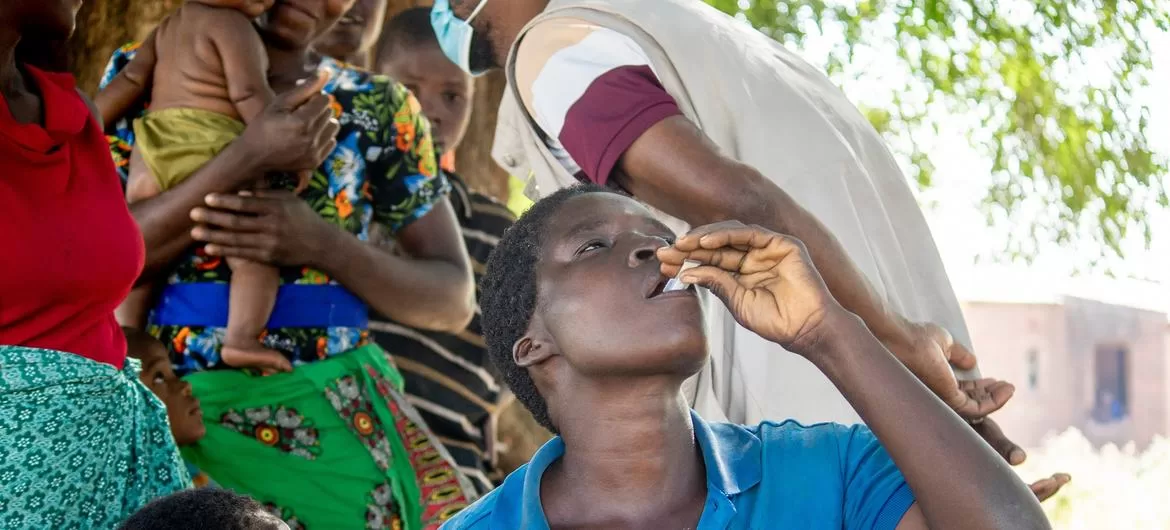The World Health Organization (WHO) has released alarming statistics on the global cholera situation for 2023, revealing a stark rise in both cases and fatalities. According to the report, cholera cases increased by 13%, while deaths surged by 71% compared to 2022. Over 4,000 people succumbed to this preventable and treatable disease in 2023.
Cholera, an acute intestinal infection primarily transmitted through contaminated food and water, disproportionately affects communities with limited access to clean water and sanitation. The year saw 45 countries reporting cases of cholera, up from 44 in 2022 and 35 in 2021. The impact on children was severe, with 38% of reported cases occurring in those under five years of age.
Click here to learn more
Contributing Factors to Cholera’s Surge
Multiple factors contributed to the rise in cholera outbreaks last year. Conflict, climate change, inadequate access to safe water and sanitation, poverty, and underdevelopment were key drivers of the disease’s spread. Population displacement due to emerging and ongoing conflicts and natural disasters further exacerbated the situation.
The WHO report highlights the shifting geographical distribution of cholera, with Africa seeing a 125% increase in cases, while the Middle East and Asia experienced a 32% decrease. Several African countries reported high proportions of cholera-related deaths occurring outside healthcare facilities, or “community deaths.” This indicates severe gaps in access to treatment and healthcare infrastructure, especially in remote or underserved areas.
For the first time, multiple countries reported significant community deaths, with five out of 13 reporting nations seeing over one-third of their cholera fatalities outside health facilities. This concerning trend underscores the need for stronger healthcare systems and better access to timely treatment.
Major Outbreaks and Ongoing Crisis
In 2023, large-scale outbreaks continued to plague Afghanistan, the Democratic Republic of the Congo, Malawi, and Somalia, each reporting over 10,000 suspected or confirmed cases. Ethiopia, Haiti, Mozambique, and Zimbabwe also saw substantial increases in cases during the year.
Preliminary data for 2024 suggests the crisis is far from over, with 22 countries already reporting active outbreaks. Although cases reported so far in 2024 are lower than at the same point in 2023, the toll remains high—342,800 cases and 2,400 deaths were reported to WHO by August 22 across all continents.
Challenges in Containing Cholera
The global demand for cholera response materials such as oral cholera vaccines (OCVs), diagnostic tests, and essential rehydration supplies has continued to strain efforts to control the disease. The shortage of vaccines has forced the International Coordinating Group (ICG) to suspend the standard two-dose vaccination regimen in October 2022, switching to a single-dose strategy to maximize coverage with limited stock.
Despite these challenges, a record 35 million OCV doses were shipped in 2023. However, WHO emphasizes that vaccination alone is not a long-term solution. Sustainable access to safe drinking water, sanitation, and hygiene are the only effective ways to eliminate cholera outbreaks in the long term.
WHO’s Response and Future Outlook
Given the escalating crisis, WHO has classified the current global cholera risk as “very high” and is working urgently to contain outbreaks and reduce deaths. Efforts include strengthened public health surveillance, improved case management, provision of medical supplies, and risk communication to affected communities. WHO has also coordinated field deployments with partners to enhance response efforts.
Since 2022, WHO has released US$ 18 million from its Contingency Fund for Emergencies to support cholera responses. However, the organization has appealed for an additional US$ 50 million to address cholera outbreaks in 2024, with funding shortages posing a serious barrier to ongoing efforts.
As the cholera crisis persists into 2024, WHO continues to emphasize the urgent need for global collaboration and investment in water and sanitation infrastructure to prevent future outbreaks and protect vulnerable populations from this deadly disease.












